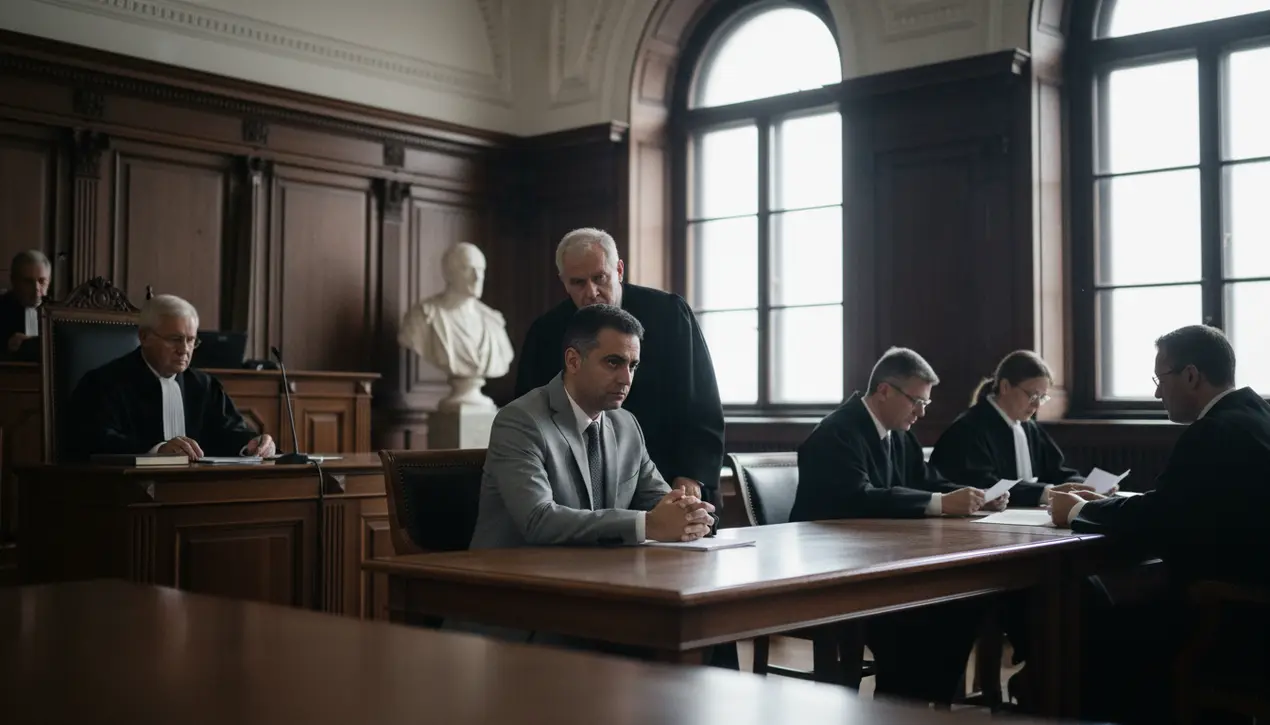
Politicsconflict & defenseTerrorism and Counterterrorism
Suspected Hezbollah Member on Trial in Germany.
RO
Robert Hayes
2 hours ago7 min read2 comments
The trial of a suspected Hezbollah member now underway in Germany represents a critical juncture in the European Union's protracted and often convoluted struggle against non-state militant actors operating within its borders. This proceeding, unfolding in a German courtroom, is not merely a singular criminal case; it is a manifestation of a broader, more significant geopolitical confrontation, echoing the kind of ideological battles that have historically defined continental security.The EU’s proscription of Hezbollah's military wing as a terrorist organisation in 2013 was a landmark decision, one that came after years of intense diplomatic pressure and internal debate, largely driven by incidents like the 2012 bus bombing in Burgas, Bulgaria, which implicated the group. This legal designation was a decisive move, transforming the operational landscape for European intelligence and law enforcement agencies by providing the necessary legal framework to pursue assets, funding networks, and operatives.The current trial, therefore, serves as a tangible test of that framework's efficacy. Analysts will be watching closely to see how the German federal prosecutor's office presents its evidence, likely drawing from a complex web of financial transactions, intercepted communications, and international intelligence sharing, particularly with allies like Israel and the United States, which have long classified the entirety of Hezbollah as a terrorist entity.The defendant's specific alleged activities—whether related to logistics, fundraising, or potential attack planning—will reveal much about the group's current capabilities and intentions on European soil. This case also forces a uncomfortable re-examination of the EU's nuanced, and some would argue, fractured, policy which attempts to draw a distinction between Hezbollah's political arm, which holds seats in the Lebanese government, and its military wing, the Jihad Council.Many counter-terrorism experts argue this is a false dichotomy, a political compromise that creates dangerous operational blind spots. The outcome of this German trial could therefore have profound consequences, potentially galvanizing a movement within the EU to follow the lead of nations like the UK and the Netherlands by proscribing the entire organization.Conversely, an acquittal or a case built on shaky evidence would be a severe blow to the credibility of European counter-terrorism efforts and would undoubtedly be seized upon by the group's supporters as vindication. The stakes extend far beyond the courtroom in Germany; they touch upon the very integrity of the EU's common security policy, its relationship with key Middle Eastern allies, and its ability to protect its citizens from the spillover of foreign conflicts. It is a modern-day legal and political drama with deep historical roots, reminiscent of past struggles against transnational ideologies, where courtrooms become the new front lines.
#featured
#Hezbollah
#Germany
#trial
#terrorism
#EU
#military wing
#member
Stay Informed. Act Smarter.
Get weekly highlights, major headlines, and expert insights — then put your knowledge to work in our live prediction markets.
Comments
Loading comments...
© 2025 Outpoll Service LTD. All rights reserved.